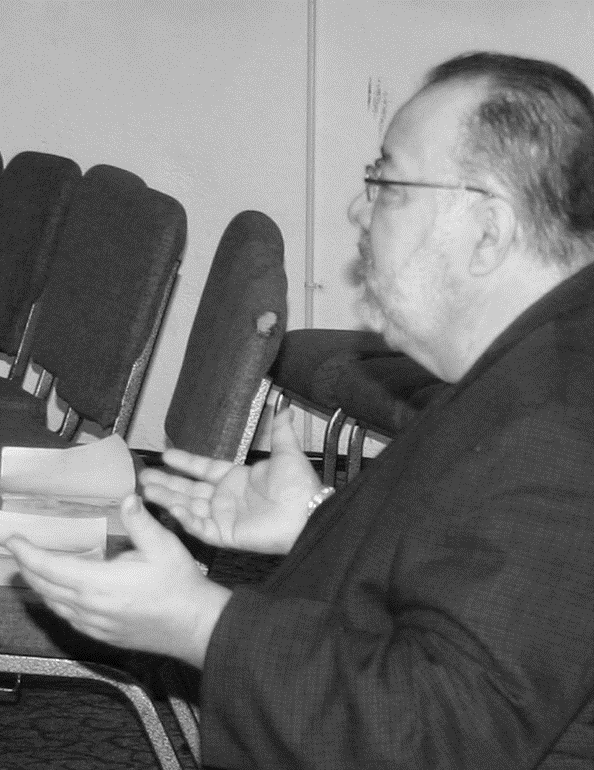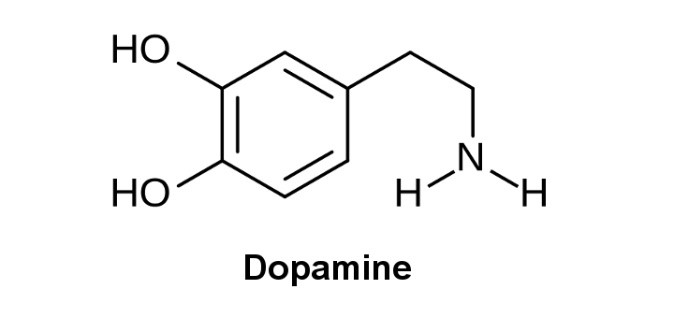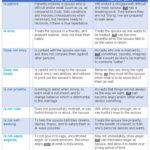Why do some people struggle so much living the Christian life as they understand the Lord wants from them? They tell themselves that they want to do what is “right,” but they find themselves often going against this desire, and giving in to baser urges. As a counselor, I have often had people in my office who have struggled or may be presently struggling, with such things as drug addiction, overeating, pornography, alcoholism, and other similar debilitating habits. Once when speaking with a client who was struggling with pornography, he asked me, “Don’t you get attracted to see porn?” I thought about his question for a moment, because I knew that even if he did not intend to, he was also asking a greater question. He simply wanted me to say “Yes” or “No.” To me, though, the question also included, “Do you struggle with anything?” I gave him his answer, “No, I am not drawn to seeing pornography as such.” I explained that I like women, just like any other healthy male, but that viewing them in questionable circumstances did not in and of itself draw or keep my attention.
 On the other hand, the greater question, was the one he did not voice, “Do you struggle with any bad habits?” Well, I am a 65-year-old man who weighs roughly about 300 pounds, when I don’t wear anything or carry heavy objects with me. I included a picture of myself in this article, so that you may get an idea of what I am saying. I don’t have any problem with showing my picture. Hiding my looks won’t change my weight or size. And, on top of that, I love myself and have a healthy respect for myself. Still, that does not take away the fact that I obviously struggle with my weight.
On the other hand, the greater question, was the one he did not voice, “Do you struggle with any bad habits?” Well, I am a 65-year-old man who weighs roughly about 300 pounds, when I don’t wear anything or carry heavy objects with me. I included a picture of myself in this article, so that you may get an idea of what I am saying. I don’t have any problem with showing my picture. Hiding my looks won’t change my weight or size. And, on top of that, I love myself and have a healthy respect for myself. Still, that does not take away the fact that I obviously struggle with my weight.
When it comes to serving God or living the Christian life, I don’t have any serious problems, but I have to admit that I have a bad habit when it comes to food. Whether it is because of over-eating, not exercising, an erroneous understanding of nutritional consumption of food, or that I eat to make up for all the love I did not get when I was a child (yes, some people do that), the truth is I am fat. So, since I struggle with something in my life, and other people struggle with serving and obeying God, what could be the answer for all of us? What may have to change for those people to stop struggling with their obedience, and for me to eat less, or at least healthy? I decided to use overeating as an example of figuring out why we humans have a proclivity towards self-indulgence and not doing what is the correct or healthier thing.
While doing some research, I came across a Psychology Today article by a fellow named, Billi Gordon, Ph.D. The article was titled, “Compulsive Overeating and Habit Formation.” In it, he admits that he is, “black, morbidly obese, and have a Ph.D. in neuroscience.” The fact that he is black has little to nothing to do with the article, but the fact that he has a Ph.D. in neuroscience and is morbidly obese does. His educational achievement implies that he must have, at least, a working knowledge as to how the body functions, and why we respond to stimuli as we do. And, he does.
Dr. Billi Gordon starts off his article by saying, “Habits are simple forms of frequently repeated learning that often occurs subconsciously. For example, you walk into a dark room and flip the light switch because you want to turn on the light, and you’ve learned to flip a light switch to accomplish that. This habit is a goal-oriented behavior; you flip the switch to achieve the goal of having more light. Flipping the light switch, like all goal-directed habits, is motivated by consequence. But have you ever had a bulb burn out, and forgotten to change it? Yet, every time you walk into that room, you still flick the light switch. This habit is a stimulus-response behavior. The stimulus of entering a dark room causes the automatic response of flipping the light switch. So, stimulus-response habits differ from goal-directed habits because they are stimulus, as opposed to outcome motivated.”
I know, some of you are scratching your head wondering what he said in everyday language. Well, he says that the reason some people over-eat is that they learned to do so as a response to something else. For example, I don’t watch TV every time I eat, but I eat every time I watch TV. It works like this, I can wake in the morning and not be hungry, work throughout the day and have a light snack or lunch. I allow the work to distract me from serious hunger pangs, but the minute I sit down in front of the TV, the stimulus-response behavior kicks in and I want to eat something while I watch my shows. The urge gets stronger the longer I sit there until I get up and get me a “snack.” After watching a couple of shows, the stimulus-response behavior kicks in again, and I want another snack, even though I am not hungry. So, I get another “snack.”
A different way of saying this is that our mind expects specific things to happen at certain times. You enter a dark room (stimulus), so you need to turn on the light (desired result), so you reach for the light switch (response). You sit in front of the TV (stimulus), but you need to be doing something else besides just sitting there staring at the television (desired result), so you get yourself a snack, which gives you something to do (response). The problem with this is that in both cases you achieve your desired result, so then you are motivated to continue to repeat the behavior each time you are faced with the same stimulus. This, in turn, becomes a pattern (or habit) you will continue to repeat. The more you repeat the behavior, the more permanent it becomes. Every time you get whatever it is from the behavior you desired, you increase the probability of doing it again.
Dr. Gordon went on to say, “Neuroscientists have long understood the distinction between goal-directed behaviors and stimulus-response behaviors. Normal eating is goal-directed behavior.” What he is saying here is that when people eat normally, it is because they want to achieve one specific goal, and that is to satisfy their hunger. They become hungry (stimulus), which causes them to think about what food they may want to eat (desired result), and therefore they go about getting something to eat (the desired result or goal). This is how we were intended to respond to hunger in a healthy manner.
On the other hand, Dr. Gordon, explains the following: “Compulsive overeating is a complex stimulus-response behavior. The stimulus may vary (boredom, anger, happiness, sexual frustration, fear, or anxiety). The strength of the response may also differ (from eating until your stomach feels slightly uncomfortable to eating until you vomit). The consequence of compulsive overeating can run the gamut from being slightly overweight to morbidly obesity or bulimia nervosa.”
So, he explains that one reason why people over-eat is that they are responding to a stimulus of which they may not be aware. If a person becomes depressed, for example, his develops a desire not to continue depressed. But, his mind may not be able to process a healthy manner in which to achieve this because he may be ignoring, or not be aware, that he is suffering from a depression. So this depression, of which he is not aware, will produce a response behavior of some sort. For our example, the person would develop a response behavior would use food as a means of soothing the person’s feelings, and giving the person the impression that they are not depressed, because they enjoy the taste of the food they are eating. It is obviously a temporary fix, which will result in further stimulus to eat more, to keep trying to feel better. This is also the process which gets someone addicted, and then it keeps them addicted. Now, with all of that said, what’s the answer to help overeaters stop overeating? Well, it’s not that easy. Why? Because the answer is also the problem.
The answer is for the person to consciously choose the desired result, begin, and repeat as often as necessary, new desired behavior(s) which will lead to achieving the goal. In other words, and for example, a person could tell himself that he wants to lose 50 pounds. Then he could reduce his eating and possibly exercise. If he continues to repeat the behavior (eating less and exercising) he should start seeing varying levels of success with time and effort. If he then decides that he is “happy” with the varied results, he will be motivated (stimulus) to continue repeating the new behavior. After some time, the new behavior will no longer be new behavior, it will be a natural part of his behavioral pattern. Theoretically, he will continue to lose weight, slim down more, and continue to be motivated to further progress at weight loss. Now, remember, I said this answer was also the problem. Why? Because we love our food.
Before I came to know that Lord, I was addicted to cocaine. It produced my desired results (to make me feel better, stronger, and more active), I loved using it (stimulus), so I found ways to get hold of more (response). I repeated this behavior over and over as much as I could, and it always produced the same results, at least until it started not doing so. I learned something valuable from my addiction; you cannot truly kick a habit as long as you continue some of the behavior regardless of how small the behavior. For example, addicts who “quit” their drug of choice tend to take on a new addiction, though the new addiction may not be similar to the old one. For example, one of my clients, the one who struggles with porn addiction, used to also be a drug addicted. His drug addiction was an obvious addiction, hard to hide for too long. Pornography is different, the addict can continue his addiction for a very long time without showing outward signs of the addiction. Some alcoholics, who give up drinking, develop an overeating habit and put on the pounds. Being an alcoholic can cause you to lose friends and family, but being fat won’t necessarily produce the same results. Some addictions hide behind the word obsession. For example, many persons who were sexually molested as children will develop unhealthy behavior in response to what they deem bad or abusive behavior of people around them, which results in their own bad behavior towards anyone they believe is out to harm them, whether it is true or not. Their stimulus is the fear of being hurt again, their desired result is to be safe, and their response behavior is to attack others to protect themselves. They, of course, do not perceive their behavior or intentions in this manner, they are convinced that they are doing the “right” thing to protect themselves. So, they continue to repeat the same unhealthy responses which produce negative reactions in other people, proving to them that they need to continue their pattern of behavior. Just wanting to quit a bad habit, addiction, obsession or bad behavior, in and of itself, is not enough. Why?
Dr. Gordon continued: “Well, as it turns out goal-directed behavior doesn’t always begin in the prefrontal cortex. Two goal-directed behaviors contribute to habit formation in the dorsal striatum: the pre-frontal cortex, and the ventral striatum. When the pre-frontal cortex initiates a goal-directed behavior, the more it is repeated, the more deeply it is encoded by the dorsal striatum. When the ventral striatum generates a goal-directed behavior, dopamine is released by the mesolimbic pathway, which makes the dorsal striatum more likely to repeat the action in the future. In the dorsal striatum, dopamine initiates action, but in the ventral striatum, it signals reward.”
The basic idea here is that there is a chemical which your brain produces which can either prompt you to good and healthy behavior or prompt you to addictive and unhealthy behavior. This chemical is called Dopamine. When you do something that you want to do, your brain rewards you with a shot of dopamine. Not because you did what is right or healthy, but just because you did what you wanted. The problem is that this happens naturally, and most of us never even get close to becoming aware that this is happening. We do what we want and we feel good, so we repeat the behavior, and we continue to feel good about it. When I say “good” here I am not saying that you feel that what you did was a good thing, no. I am saying that your brain gives you a shot of Dopamine, and you enjoy it without even knowing what happened. That reward you got (the dose of Dopamine) is enough to get you hooked on the behavior.
And how does that work? Dr. Billi Gordon said, “Hence, the brain releases more dopamine when you want to do something than it does when you do it. That’s because, in the reward game, the trick is getting you to want to do something enough to do it; once that happens, game over. That’s problematic because the larger amounts of dopamine released in wanting to eat, make wanting to eat more pleasurable than eating. Hence, compulsive overeaters can eat beyond the point of a pleasant, healthy experience. It is not the eating experience that is driving the compulsive, addictive behavior but the extra dopamine derived from wanting to do it because of the reward cue. This scenario is the signature of any and all addiction.”
Yes, I hear you asking, “What has all of that have to do with my struggle in my Christian walk? Well, the reason so many of us struggle to live “right,” or obeying God, is because it is not what we want to do. No, I don’t mean that we want to be bad people and go to hell. I mean that when we do what we want, instead of what God teaches us we should through His Word, we get a hit of Dopamine because we did what we wanted. We are, in essence, rewarded for our disobedience. Keep in mind that humans are naturally selfish. This is how God made us. When we behave selfishly, we are simply behaving according to the natural expectation of this human life. When we behave selfishly, our brain rewards us with a fix of Dopamine, and the chemical only serves to increase our desire to continue to be selfish.
 The “fix,” will require that we purposely set a goal which is achievable, work toward achieving the goal on purpose, repeat the necessary behavior to achieve the goal (be less selfish and more selfless), until we succeed. Then we will get a hit of Dopamine for having succeeded. This shot of Dopamine will serve to motivate us to continue to be selfless, and less selfish. We will never totally rid ourselves of the addiction to selfishness, but we can succeed in being much more selfless if we learn to control how and when our brains reward us with a hit of Dopamine.
The “fix,” will require that we purposely set a goal which is achievable, work toward achieving the goal on purpose, repeat the necessary behavior to achieve the goal (be less selfish and more selfless), until we succeed. Then we will get a hit of Dopamine for having succeeded. This shot of Dopamine will serve to motivate us to continue to be selfless, and less selfish. We will never totally rid ourselves of the addiction to selfishness, but we can succeed in being much more selfless if we learn to control how and when our brains reward us with a hit of Dopamine.
So, for example, if I feel like I am not living “right” before God, I don’t read my Bible “enough,” pray “as I should,” or live the way I am “supposed to,” and if I understand how the reward system in my brain works, I can choose to do something different. I can choose to read two or three verses each day (something that is easily done), and because I did what I wanted, I will get a hit of Dopamine and feel good at my success. If I chose to pray while driving to work, instead of for one hour on my knees next to my bed (how uncomfortable), whether the drive is long or short, I will have met my goal. I will get a hit of Dopamine because I succeeded at doing what I wanted. Or, if I do one good thing for some other person because I am a Christian, then I will feel good about my walk with God, and get a reward from my brain with a shot of Dopamine. In these three cases, because of the expectations, I placed on myself, and the achievability of the goals, I will succeed, get my hit of Dopamine, and will be motivated to repeat the behavior. I will then repeat the behavior, succeed again, get my Dopamine reward, and develop a habit (a type of addiction, but a “good” one), of living right before the Lord. The more I repeat the behaviors, the more Dopamine reward I get, the more I want to obey God. So then now, I am obeying God because that is what I want.
This is why you will see those people who seem to be so content and happy obeying God and living “right” before Him. It is not that they are better people or Christians than you are, it is that they have learned behavior which produces a Dopamine reward for their efforts. Maybe they would not explain it the way I have, but they would probably say something like, “I obey God and live “right” before Him because He loves me (a Dopamine hit) rewards me by blessing me (a Dopamine hit) for my obedience and selflessness towards others (a Dopamine hit.), and that  pleases Him (a Dopamine hit).
pleases Him (a Dopamine hit).
Am I saying that I am addicted to Jesus? Yes! Yes, I am! My brain rewards me with a Dopamine fix every time I even think about wanting to obey Him, even before I actually do so. So I purposely think about how I can obey Him, what He wants me to do, and how I can serve others so that He will be pleased. All of this results in my brain rewarding me with a Dopamine fix, which increases my desire for another fix, which means I must repeat the desired behavior so that I will get my fix. In other words, the more I behave as Jesus wants, the more I will want to behave as Jesus wants. I win, He wins, and others will win as well. I guess you could say get high on the Lord. Would you like a fix too?





